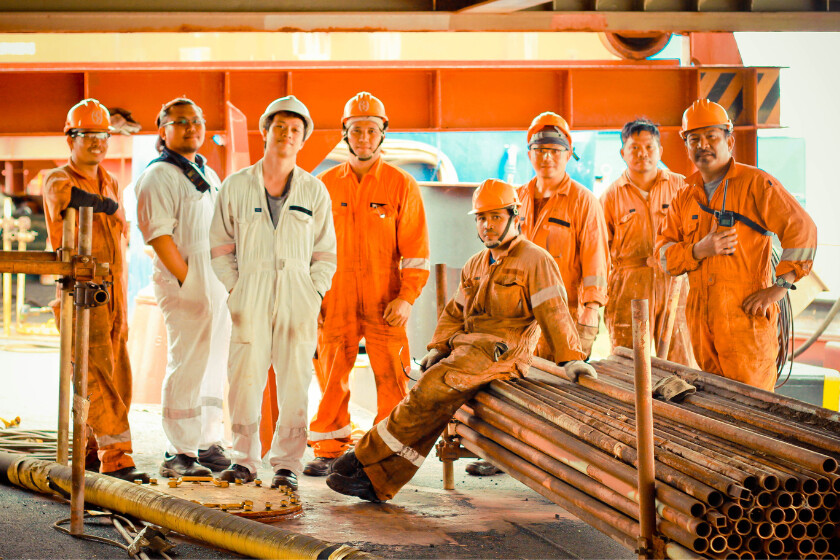On World Maritime Day, Simon Grainge explores how the maritime sector can retain the skilled seafarers that it will need to respond to the climate emergency.
It is fitting that the theme of this year’s World Maritime Day focuses on efforts to limit the sector’s impact on the environment. Not only does this year mark the 50th anniversary of the landmark MARPOL Convention to prevent pollution from ships; decarbonisation is also very much a watchword for the maritime sector in 2023 and is a fixture of conference agendas and omnipresent in maritime press headlines. Decarbonisation is also having a very real impact at an operational level for both ship and shore staff. This year has seen a flurry of new regulations aimed at reducing maritime’s contribution to the climate emergency, including the IMO’s new Carbon Intensity Indicator (CII) and energy efficiency index for existing ships (EEXI) as well as regional regulatory frameworks such as FuelEU Maritime. Along with decarbonisation, the growing recruitment and retention crisis is a key preoccupation for the maritime sector. The two rarely form part of the same conversation; however, what seafarers are telling ISWAN about the impact that the push to decarbonise is having on their lives suggests that they should be considered more frequently in tandem.
Seafarers are at the frontline in terms of turning maritime’s climate goals into a reality, as they are required to adapt rapidly to handling often hazardous alternative fuels and technically complex operating systems. The scale of the challenge of ensuring that seafarers of the future have the skills they need to operate such technically sophisticated vessels has been most comprehensively mapped in the work of the UN Global Compact’s Maritime Just Transition Task Force, which estimates that 800,000 seafarers will require additional training by the mid-2030s if maritime is to reach the goal of zero carbon by 2050.
The overarching driver of the Maritime Just Transition Task Force is to chart a “safe, equitable and human-centred” path towards meeting the goal of a decarbonised industry. However, its report also emphasises one of the core dilemmas that is undermining this aspiration: there is a need to begin building training infrastructure immediately if these goals are to be met, but the lack of clarity about the viability, availability and uptake of alternative fuels, along with uncertainty about regulatory frameworks and financing, severely inhibit efforts to develop the skills development programmes that the sector so urgently needs.
The consequences of the pace of technological change outstripping both regulation and training provision is one of the issues that seafarers are increasingly raising with ISWAN, both through our helplines and through conversations with our teams in India and the Philippines. We consistently hear that, for many seafarers, adapting to new decarbonisation technologies is adding additional pressure to what is already an exceptionally stressful workload. As a result, earlier this year we launched a survey to find out more about the impact that decarbonisation is having on the welfare of both seafarers and shore-based staff.
What seafarers are telling us is that the majority of those working in maritime are highly supportive of the urgent need to decarbonise and willing to embrace technological change. However, the lack of training, reduced crew sizes and the requirement to comply with different and at times inconsistent regulatory regimes are substantially increasing workloads, stress levels, fatigue and even fears of criminalisation. These additional pressures come at a time when maritime’s officer supply shortage has already hit an all-time high as multiple factors including increased workloads, reduced shore leave, an unwillingness to undertake long contracts, and the over-occurrence of issues such as bullying and harassment lead many seafarers to pursue alternative careers at shore.
While ISWAN fully acknowledges the need to respond with urgency to the climate crisis, this cannot be at the expense of seafarers’ wellbeing. Seafarers are, however, telling us that there are concrete steps that both individual companies and the sector as a whole can take to safeguard seafarer welfare and retain the skills that maritime will need to navigate the manifold challenges of the zero-carbon transition. It is essential that health and safety regulations and protections keep apace with the development of environmentally cleaner but potentially more hazardous means to fuel shipping. Greater uniformity of regulatory regimes and more support for seafarers to comply with inspection and audit requirements would also make a substantial difference to reducing seafarers’ workloads and stress levels. The dual challenges of decarbonisation and the recruitment and retention crisis should also provide further impetus for maritime to renew its commitment to developing the inclusive, supportive and “no-blame” leadership and management cultures that will help to retain skilled seafarers in an era of rapid change.
The full findings of ISWAN’s survey on the impact of decarbonisation on seafarer wellbeing will be available later this year. The impact of technology on seafarer welfare will also be a key theme for ISWAN’s annual seminar, ‘Addressing the maritime recruitment crisis: Seafarer wellbeing in a changing world', which will take place in Helsinki on 16 November 2023.




